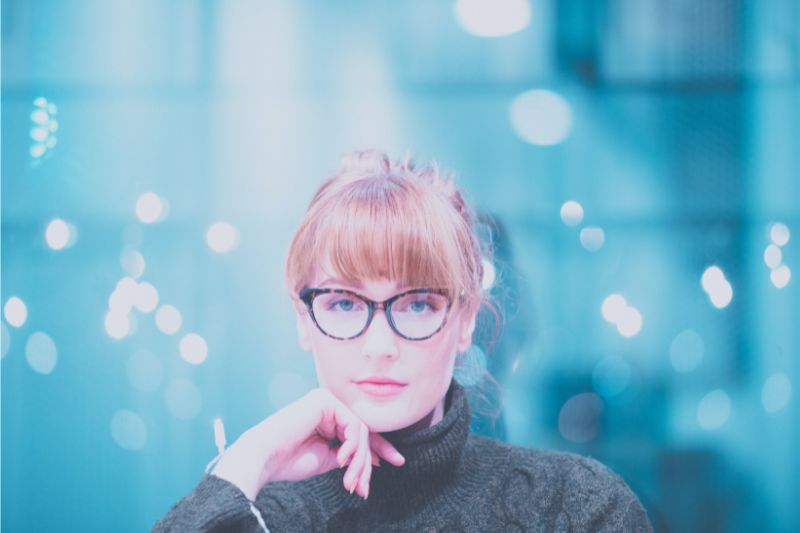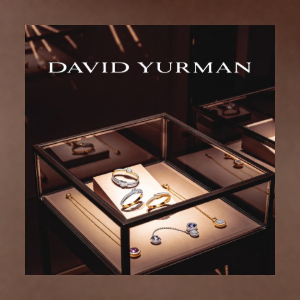No products in the cart.
3 Benefits of Wearing Blue Light Glasses

In our increasingly digital world, it’s common for people to spend most of their days looking at a screen of some form. For adults, it might be a laptop screen that they use to work from home. For kids, it might be a phone or digital tablet that they use to follow the latest TikTok trends. For families, it might be a TV screen for binge-watching the latest episode of their favorite shows together. Whatever the case, our eyes are constantly focused on blue light screens, which are illuminated using LED backlights that produce blue electromagnetic waves. While our eyes offer some protection against blue light, the amount of screen time we partake in can cause negative effects including: dry eyes, headache, and poor sleep.
One way to protect your eyes from the unpleasant side effects of prolonged blue light exposure is by wearing blue light glasses, a form of eyewear that offers protection from the blue electromagnetic waves that LED screens produce. If you’re on the fence about whether you need blue light glasses, we’re here to break down all the benefits that they have to offer.
What Is Blue Light?
Blue light is a form of light produced by digital LED screens, commonly found in smartphones, digital tablets, laptops, and flat-screen TVs. Blue light is one of the few electromagnetic waves that can be detected by the human eye, and is characterized by very short, but powerful wavelengths. Our retinas, the parts of the eye that absorb light and transmit it into nerve symbols in the brain to create the images we see, can be damaged by overexposure to too much light. Luckily, we have our lenses and corneas to protect our retinas from too much light exposure from the sun. However, scientists have recently become more concerned with our exposure to blue light sources. The average screen time per week for U.S. residents in 2022 is between 7 to 8 hours a week, meaning we do a whole lot of looking at blue light at a very close range. This prolonged exposure has the potential to cause damage to the retina, so it’s important to do what you can to reduce your blue light intake.
What Are Blue Light Glasses?
Blue light glasses are one of the best ways to reduce your blue light exposure apart from limiting your screen time altogether. Spending time away from screens can be incredibly difficult for those who work remote jobs, as most of their work needs to take place via computers or other digital devices. As such, it can be helpful to have a pair of blue light glasses to wear throughout the day to give your eyes a much needed break. The lenses in blue light glasses are made specifically to filter out a percentage of potentially harmful blue light electromagnetic waves, so your eyes are less likely to suffer the negative effects of staring at screens for too long.
What Are the Benefits of Wearing Blue Light Glasses?
Blue light glasses can help counteract many of the potential negative side effects that our eyes can experience as a result of prolonged blue light exposure.
Dry Eyes
Perhaps the most common symptom reported by those who are frequently exposed to blue light sources is dry eyes. This is because when we’re exposed to blue light sources, we tend to blink less. By wearing blue light glasses, you’ll be more predisposed to blink, and your eyes will be less likely to be dried out by blue light waves.
Headaches
Another common symptom caused by visual strain from blue light that people experience is headaches. Blue light can be especially triggering for those who suffer from migraines. As such, blue light glasses can help to keep headaches at bay when you’re engaging with a screen.
Insomnia
Many doctors recommend limiting your blue light exposure for at least two hours before bed, as blue light waves have a tendency to wake you up, and can cause your body to produce less melatonin. By not producing enough melatonin, your body’s circadian rhythm is thrown off, and can cause issues in sleeping patterns such as insomnia. However, avoiding blue light before bed can be difficult for many people who enjoy watching television or movies to wind down at night. As such, wearing blue light glasses while using screens before bed can help you to avoid disruptions in your sleep cycle.
In Conclusion
Blue light glasses are incredibly useful in reducing the negative symptoms of prolonged screen exposure. By wearing blue light glasses to filter out the amount of blue light waves that your eyes absorb, you’re less likely to suffer from dry eye, headaches, and sleep cycle interruptions as a result of your screen time. Try a pair of blue light glasses today to preserve your eye health without having to harshly compromise your screen time needs.










Leave a Reply